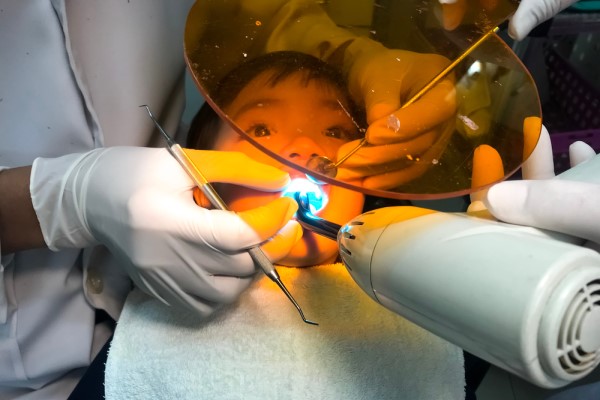Get Dental Sealant Treatment to Protect Your Teeth

A dental sealant is a covering that goes on the teeth to protect against decay. The foods and drinks that you consume every day are what can do the greatest harm to your teeth. Without protection with dental sealant, sugars, acids, and other things can erode, degrade, and damage the teeth. Learn about dental sealants and how they may help you safeguard your teeth.
An overview of dental sealants
Dental sealant application is an effective technique to safeguard the teeth against cavities. Many dentists offer dental sealant as an additional layer of protection to keep the teeth healthy and strong. The sealant is a plastic resin that coats the visible enamel surfaces of teeth. This resin covers the microscopic cracks on the teeth and smooths the surface layer.
How tooth decay occurs
Tooth decay and gum disease are two common oral conditions. Both diseases affect the mouth's hard (teeth) and soft (gum) tissues, and they are the result of the presence of sugar and bacteria in the mouth.
The sugar in foods and drinks combines with bacteria in the oral cavity to form plaque, an acidic material. Plaque is a sticky, clear coating that adheres to the surfaces of the teeth. It accumulates around the gum line and hardens into tartar if it is not cleaned off in time. To prevent cavities, patients should brush their teeth at least twice a day. Flossing at least once a day is also important to remove plaque and food particles trapped between the teeth and along the gum line.
Plaque's acidic content can degrade the minerals in a tooth. That disintegration is dental decay, which can eventually extend to the interior of the tooth. The word "cavity" is used to describe dental decay because it typically forms a hole in the tooth. A tooth's lost minerals cannot be recovered once eroded. A dentist will need to clean out the decay and fill the cavity with a dental filling. Preventing cavities is always the best strategy, and excellent oral hygiene practices and dental sealants can help.
How dental sealants help stop tooth decay
Getting tooth sealant is an effective method to prevent dental decay. The dentist will apply a dental sealant over the teeth in the form of a thin plastic covering. The molars and premolars are often marked for dental sealants because they perform the most chewing and are the most susceptible to decay. The molars are also more vulnerable to cavities than the front teeth due to deeper grooves and their location in the mouth. According to the American Dental Association, a dental sealant can lower the risk of cavities by over 80%.
Dental sealant sticks to the teeth and fills up any grooves or fissures on the surfaces, preventing plaque and other acidic chemicals from degrading the tooth enamel. Food often gets stuck in these regions, and a toothbrush may not be enough to clean them effectively. Dental sealants may also help prevent tooth decay from developing, which helps prevent the need for root canals and other, more complicated treatments. Dental sealant may last up to 10 years with proper oral care.
Placing the dental sealants
To get dental sealant, patients should first schedule an appointment with their dentist. The dental professional will proceed with a complete examination of the oral cavity to see if there are any issues and to make suitable recommendations. If the dentist thinks that the patient is eligible for the procedure, they will proceed with the dental sealant application, which is straightforward and painless. To prepare the tooth for the sealant, the dentist will clean the teeth with dental equipment and supplies. Next, the teeth will be rinsed with an acidic compound, which helps build a stronger and more consistent connection with the sealing resin compound after application.
The next step will be for the dentist to apply the liquid resin to the visible surfaces of the teeth to fill in and smooth over any imperfections, fissures, or grooves. Finally, the dentist will cure and harden the resin using a special light. Some sealants that are produced from two separate compounds can harden without light after combining and applying them to the tooth.
The bottom line
Now that you know about the benefits of dental sealant, you can make an informed decision about getting it. Maintaining proper oral hygiene lowers the risk of cavities, but it does not stop them completely. You can speak with your dentist about dental sealants and other oral health measures that can serve as additional protective measures.
Request an appointment here: https://woodlandparkdental.com or call Woodland Park Dental at (801) 416-1603 for an appointment in our Layton office.
Check out what others are saying about our dental services on Yelp: Dental Sealants in Layton, UT.
Related Posts
Dental sealants are an effective method to protect your smile from cavities and decay. They offer a barrier that shields your teeth from harmful bacteria and plaque. This preventive treatment can help you maintain optimal oral health and prevent more serious dental issues in the future.Dental sealants are thin and plastic coatings that dentists apply…
Fluoride is an all-around defense for your teeth, gums, and whole mouth. This is why many towns add the mineral to drinking water as a matter of public health. Dentists also use fluoride treatments to protect their patients’ teeth from tooth decay.Read on for a brief walkthrough of how fluoride protects the teeth at a…
Preventive dentistry is important in maintaining oral health. Visits in this field of dentistry involve treatment and dental education. These appointments aim to prevent gum disease, cavities, and enamel wear. They result in an attractive smile and healthy teeth. If you want to know more about vital preventive dentistry visits, here are the details.Preventing the…
A kid friendly dentist provides essential dental care while creating a comfortable and welcoming environment for young patients. These professionals understand the unique needs of children and focus on preventative and restorative care that supports long-term oral health. Establishing positive experiences at an early age helps children develop lifelong oral hygiene habits and reduces anxiety…

